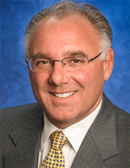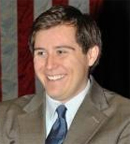Frederick Douglass. What the Black Man Wants. How does Douglass make effective arguments? A novel depicting the picturesque idea of the self made American man and entrepreneur who rose from obscurity. was written by F. Scott Fitzgerald.Presentation on theme: "What the Black Man Wants"— Presentation transcript In 1838: When did Douglass become active in the antislavery movement? published his autobiography: in hope that his experiences might: When Civil War beganThis website uses cookies to ensure you get the best experience on our website. Learn more. Got it! The speech is perhaps the most widely known of all of Frederick Douglass' writings save his Frederick Douglass, "What the Black Man Wants", speech in Boston, Massachusetts (1865).The ways that conservatives use Douglass can affirm a dispiriting sense that, all too often, opportunism and ignorance foreclose discussions about race in America. The locus classicus for conservative accounts of Douglass is a passage from "What the Black Man Wants" (1865), which...I do not know, from what has been said, that there is any difference of opinion as to the duty of abolitionists, at the present moment. How can we get up any difference at this point, or at any point, where we are so united, so agreed? I went especially, however, with that word of Mr. Phillips, which is...
What the Black Man Wants - ppt video online download
...the Black Man Wants," Fredrick Douglass details the ever-present struggles still haunting black people in the aftermath of slavery, namely suffrage and figuring out what real He argues that as long as black men and women are treated differently by the law, the law would serve to only "affirm [their]...How "Fred Bailey" became "Frederick Douglass" is itself a convoluted story. When Fred escaped from Baltimore in 1838, he changed his last name Toward the end of the Civil War he delivered a speech, "What the Black Man Wants," discussing what the nation should do to help the newly freed slaves.Douglass uses an angry tone to convey the idea that the black man is bitter about the absence of universal suffrage. convey his message in "What the Black Man Wants"?" in English if you're in doubt about the correctness of the answers or there's no answer, then try to use the smart...Douglass' thoughts to why suffrage for African Americans is important can be seen in a 1865 speech he gave entitled "What the Black Man Wants." Early in his speech, he makes the case that along witview the full answer.

Definitions of jonathon douglass - OneLook Dictionary Search
What do you think justice means to Douglass. Underline/annotate text to support your answer. Re-read lines 32- 34. What point is Douglass making by using the "apple" metaphor? What reasons does Douglass provide for why he thinks African Americans should be enfranchised? In line 10, what is...A. How does Douglass use tone to effectively convey his message in "What the Black Man Wants"? Which of the following words best describes Douglass' tone in his autobiography? bitter and bold passionate. Because the story is an autobiography each of the following words describes...Douglass wants Blacks to be allowed to fail or succeed on their own. He also points out the irony that Blacks have… He also points out the irony that Blacks have been considered citizens in time of war but aliens in time of peace. We have included an excerpt from the speech, along with questions and...Today Frederick Douglass is best known for his autobiographies; but while he was alive, he was known as a fiery orator who was always in demand. Included here are: The Meaning of July Fourth for the Negro, What the Black Man Wants, Appeal to Congress for Impartial Suffrage, The Color...The student will be able to: 1.comprehend a short, challenging text 2.analyze the author's choice of words and literary devices and discuss how they affect tone. Differentiate between Figurative and Connotative words. Determine the meanings of words and phrases as they are used in the text.
Story of the Week February 14, 2018
Frederick Douglass, "What the Black Man Wants"
Frederick Douglass (1818–1895)From Reconstruction: Voices from America's First Great Struggle for Racial Equality
"Heroes of the colored race," chromolithograph print revealed by J. Hoover (Philadelphia, 1881–1883). See caption underneath for whole symbol details.Today, Valentine's Day, is the two hundredth birthday of Frederick Douglass.
Like many slaves, Frederick Augustus Washington Bailey wasn't positive when he was once born and by the time he wrote his first memoir in 1845 he figured he was born in 1817. Scholars have since proven that he should were born in February 1818—although you'll still find many reference works and history books that give 1817 as the yr of his birth.
How "Fred Bailey" was "Frederick Douglass" is itself a convoluted story. When Fred escaped from Baltimore in 1838, he changed his final identify to Stanley, and altered it again to Johnson when he arrived in New York. He then went to New Bedford, where the white couple who sheltered him have been the Johnsons, and he discovered from them that so many escaped slaves had taken the identify that it had develop into a telltale sign to slave catchers—and an exasperating problem in the Johnsons' efforts to hide fugitives. During Fred's keep at their home, Robert Johnson used to be reading Walter Scott's "The Lady of the Lake" and instructed the name Douglass, after the poem's heroic Scottish fugitive James Douglas. Thus used to be born Frederick Douglass.
Within two decades Douglass was the one of the most renowned men in the United States—author of two broadly learn memoirs and an orator who commanded among the best possible speaking fees in the nation. Toward the end of the Civil War he delivered a speech, "What the Black Man Wants," discussing what the country should do to help the newly freed slaves. In honor of Frederick Douglass's bicentennial, we provide it in full as our Story of the Week selection.
Read "What the Black Man Wants" by way of Frederick Douglass
Image, above: "Heroes of the coloured race," chromolithograph print revealed by way of J. Hoover (Philadelphia, 1881–1883). Frederick Douglass is flanked by way of U.S. Senators Blanche Kelso Bruce and Hiram Rhodes Revels and surrounded via scenes of African American lifestyles and portraits of John Roy Lynch, Abraham Lincoln, James A. Garfield, Ulysses S. Grant, Joseph H. Rainey, Charles E. Nash, John Brown, and Robert Smalls. Revels used to be the first African American elected to the Senate, to fill a partial term in 1871; Bruce was the first African American to serve a full term, starting in 1875; both men represented Mississippi. Image courtesy of Library of Congress Prints and Photographs Division.
Jackson Graduates From U. Of Georgia

Ryan Kuresman

우리카지노총판 》

Mc

Jeanine O'Kane

Jim Savage

Paula Silver

Jeffrey Pohlman

Ed Gillespie

Jay Curley

Paul Tencher

Ballantyne

Shell

Fedex

Jim Gorman

Arthur Sulzberger Jr.

Miles

Ljaf

Bernie Sanders

Robin Chandler

Om Group







Tidak ada komentar:
Posting Komentar